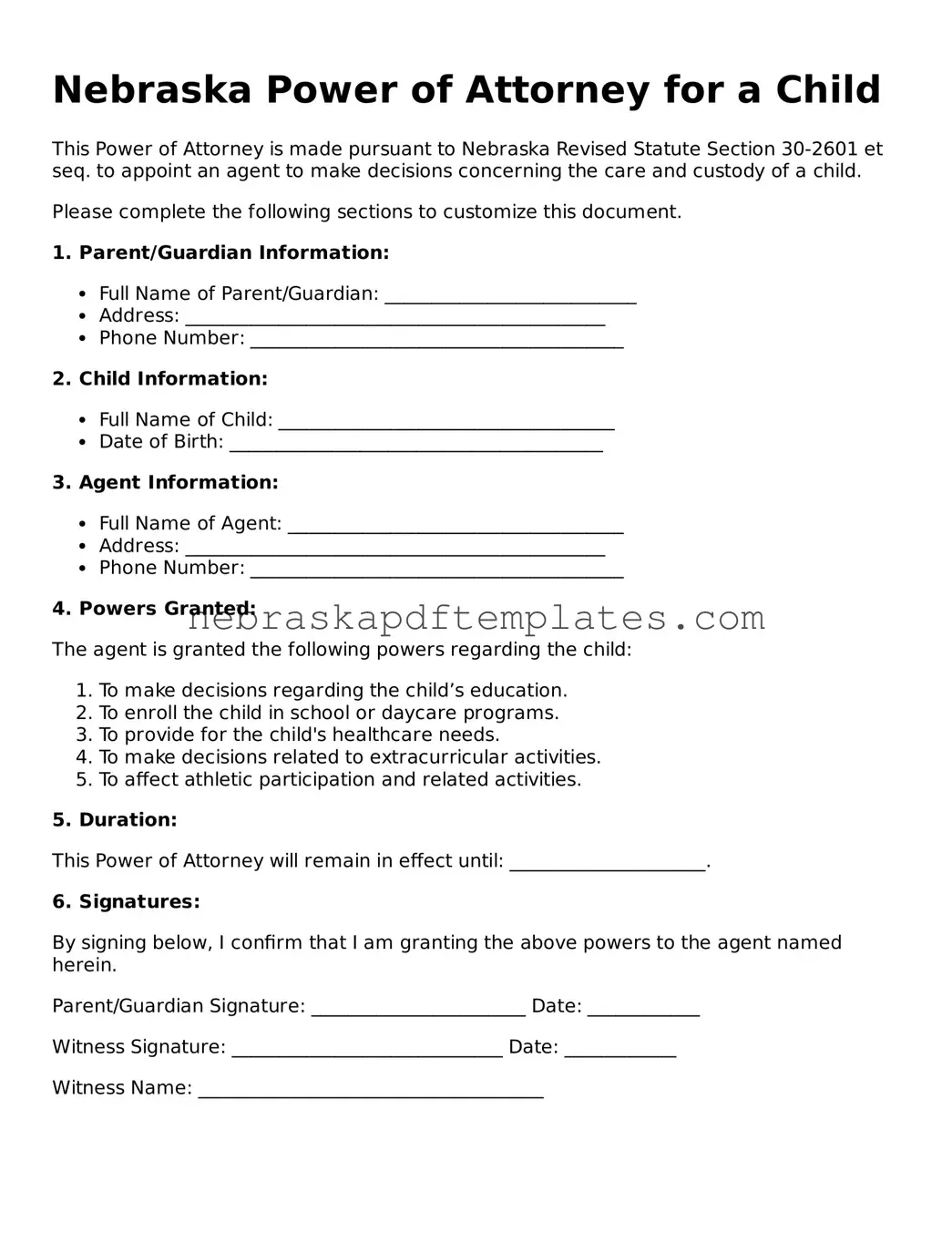Attorney-Verified Power of Attorney for a Child Document for Nebraska
The Nebraska Power of Attorney for a Child form is a legal document that allows a parent or guardian to designate another individual to make decisions on behalf of their child. This form is especially useful in situations where the parent or guardian is temporarily unable to care for the child, such as during travel or medical emergencies. Understanding the details of this form can help ensure that a child's needs are met when a parent cannot be present.
Ready to fill out the form? Click the button below to get started.
Access Editor Here

Attorney-Verified Power of Attorney for a Child Document for Nebraska
Access Editor Here
Finish your form now
Finalize Power of Attorney for a Child online — edit, save, and download effortlessly.
Access Editor Here
or
➤ Power of Attorney for a Child
